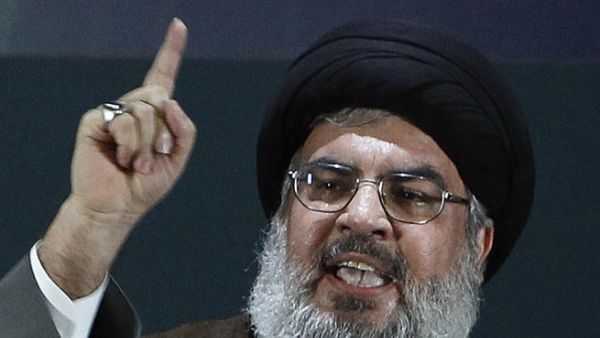BEIRUT: Debate raged among Lebanon’s political factions over the weekend after speeches by the leaders of Hezbollah and the Future Movement, with a top Hezbollah official denouncing what he called internal arms aimed at destabilizing the country, in a veiled reference to the Future Movement.
“The weapons of the resistance are for the good of Lebanon, and this was proven practically,” Sheikh Naim Qassem, the deputy secretary-general of Hezbollah, said at an iftar on the occasion of Al-Quds Day.
“But the weapons of the alleyways are an evil for Lebanon, and the leaders of the arms of the alleyways are known, as are those who provide training, funding and weapons, and open the ports to make it easy to move from Lebanon to its neighbors.”
The “weapons of the alleyways” is a veiled reference to the Future Movement, which Hezbollah blames for arming extremist groups in Tripoli, Sidon and local neighborhoods.
The party also accuses the Future Movement of facilitating arms shipments to rebels in Syria through Lebanese ports.
“Arms are a method, and can denote good and evil, and it can be used for the good of the state or against it,” Qassem added. “What is important is how these arms are used and what their goals are.”
He said that Hezbollah’s arms were protecting Lebanon because they were a deterrent to Israel.
Dueling speeches by Hezbollah chief Hassan Nasrallah and former premier Saad Hariri fueled an already polarized debate over the resistance’s arms.
In a speech Friday, Hariri said his group was ready to attend the National Dialogue to discuss the divisive issue of the party’s arms. Hariri lashed out at Hezbollah, accusing the party of using its arms to influence political life in Lebanon, and slamming it for its interference in the long-simmering sectarian conflict in Syria.
Nasrallah, also speaking Friday in a rare public appearance, dismissed claims of “Shiite expansion” in the region as a ploy to divert attention from Israel, warning that the idea was serving to fuel domestic political disputes.
Hezbollah supporters stressed the need for the party to keep its arms to fight Israel, while the group’s opponents argued that it was putting its interests above Lebanon.
Lebanese Forces leader Samir Geagea said in an interview he saw no point in dialogue with Hezbollah, and said the party was interested in keeping Lebanon stable so as not to jeopardize its position in Syria, where the party is fighting alongside forces loyal to President Bashar Assad. “Hezbollah drags us to war without asking for our opinion,” he told Voice of Lebanon.
He blamed the party for inciting sectarian tensions by entering the war in Syria, a charge that Hezbollah has levied against its opponents in the Future Movement and its backers.
Kataeb party leader Amin Gemayel praised Hariri’s speech, backing the principle that the only legitimate arms in Lebanon belong to the state.
“There cannot be two armies in one land,” Gemayel said Saturday.
Gemayel said Nasrallah’s pledge that Hezbollah stands by the Army indicates a schism in Lebanon’s institutions.
“The concept of the resistance alongside the Army institutionalizes dual leadership, dual arms, dual command, and two Lebanons,” he said.
MP Ammar Houry of the Future Movement said Hezbollah had frozen the situation in Lebanon in anticipation of the outcome in Syria, adding that the primacy of Hezbollah’s arms in the country was unacceptable because of the party’s foreign interventions.
“The saying of ‘the people, the Army and the Resistance’ cannot continue,” Houry said Sunday, after praising Hariri’s speech.
“The Resistance is now in another place, in Qusair and Damascus and Bulgaria and Nigeria,” he said, referring to locations where Hezbollah or its proxies have been accused of intervening.
Mount Lebanon Mufti Mohammad Ali Jouzo had harsher words for the Nasrallah speech, denouncing the Hezbollah leader for veering from the path of Ali bin Abi Taleb, a companion and cousin of the Prophet Mohammad and the second-most venerated figure in Shiite Islam.
“What is happening in Syria is blatant enmity toward Arabs and the Syrian people, and is blind sectarian intolerance against the Sunnis by the regime, Iran and Hezbollah,” he said. “I wish that you, Sayyed Hasan, did not drown in the blood of Sunnis since the assassination of [former] Prime Minister Rafik Hariri to the assassination of Syria’s people.”









